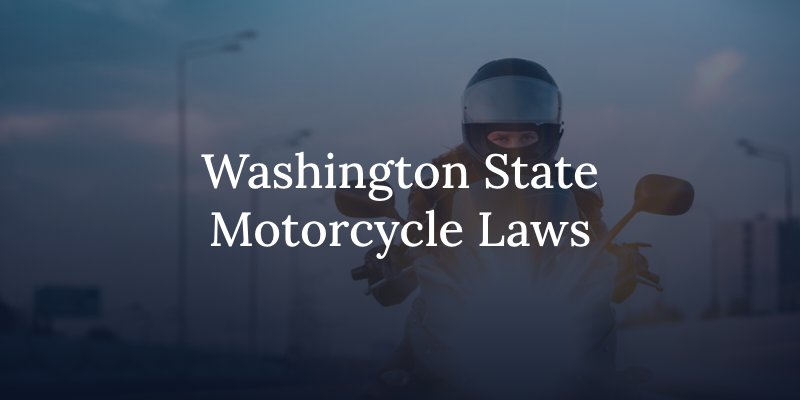Motorcycle Laws in Washington State
In Washington State, the legal definition of a motorcycle is specified by the Washington State Legislature. According to the Revised Code of Washington (RCW), a motorcycle is defined as follows:
Legal Definition of a Motorcycle
- RCW 46.04.330: A “motorcycle” is a motor vehicle designed to travel on not more than three wheels in contact with the ground, on which the driver rides astride the motor unit or power train and which is designed to be steered with a handlebar.
Key Elements of the Definition
- Motor Vehicle: It must be a motor vehicle, meaning it is powered by an engine.
- Wheels: It has no more than three wheels in contact with the ground. This includes traditional two-wheeled motorcycles as well as three-wheeled motorcycles (trikes).
- Driver Position: The driver must ride astride the motor unit or power train. This implies a seating position similar to riding a horse, where the rider is seated with a leg on each side of the vehicle.
- Steering Mechanism: The vehicle is designed to be steered with a handlebar, distinguishing it from other motor vehicles that might use a steering wheel.
Exclusions
- This definition generally excludes vehicles with more than three wheels, fully enclosed vehicles, or vehicles that use a steering wheel instead of handlebars.
Motorcycle laws in Washington State cover various aspects of riding and ownership, including licensing, equipment requirements, safety regulations, and insurance.
Licensing Requirements
- Endorsement: To legally operate a motorcycle in Washington, riders must have a valid motorcycle endorsement on their driver’s license. This requires passing a knowledge test and a skills test.
- Instruction Permit: Individuals can obtain a motorcycle instruction permit if they are at least 16 years old and have completed a motorcycle safety course or passed the written knowledge test.
- Education: Riders under 18 must complete a Basic Rider Course to obtain an endorsement.

Equipment Requirements
- Helmets: All motorcycle riders and passengers are required to wear DOT-approved helmets.
- Eye Protection: Goggles, glasses, or a face shield are mandatory unless the motorcycle is equipped with a windshield.
- Headlights and Taillights: Motorcycles must have working headlights, taillights, and brake lights. Headlights must be on at all times when riding.
- Mirrors: Motorcycles must have at least one mirror.
- Turn Signals: Motorcycles manufactured after January 1, 1960, must have turn signals.
- Fenders: All motorcycles must have fenders on both wheels.
Operational Laws
- Lane Splitting: Lane splitting (riding between lanes of traffic) is illegal in Washington.
- Passenger Requirements: Motorcycles must have a seat and footrests for passengers. Passengers must wear helmets.
- Speed Limits: Motorcyclists must adhere to the same speed limits as other vehicles, and speeding is subject to fines and penalties.
- Riding Side-by-Side: Two motorcycles may ride side-by-side in a single lane, but no more than two abreast are allowed.
Insurance and Registration
- Insurance: Motorcycles must be insured with liability coverage that meets the state’s minimum requirements.
- Registration: Motorcycles must be registered with the Washington Department of Licensing and have a valid license plate displayed.
Safety and Training
- Motorcycle Safety Courses: The state encourages riders to take motorcycle safety courses, which can be beneficial for reducing insurance rates and improving riding skills.
- Protective Gear: While not legally required, it is recommended to wear protective clothing, such as jackets, gloves, and boots.
Other Considerations
- Noise Regulations: Washington has specific noise level limits for motorcycles, and modifications that increase noise beyond these limits are prohibited.
- Off-Road Riding: For off-road riding, motorcycles must meet specific requirements and may need an off-road vehicle (ORV) permit.
These laws are designed to ensure the safety of motorcyclists and other road users. It’s essential for riders to stay informed about the latest regulations and best practices for safe riding.
Have You Been in a Motorcycle Accident?
The team at Brumley Law is here to provide guidance and support. Our Seattle motorcycle accident lawyers are committed to helping you understand your rights and pursue fair compensation under Washington law.
Contact Brumley Law today at (833) 832-2727 or use our online form to schedule. Our team can review your situation and discuss your legal options under Washington Law.